TUC backs day of action over Trade Union Bill
- Published
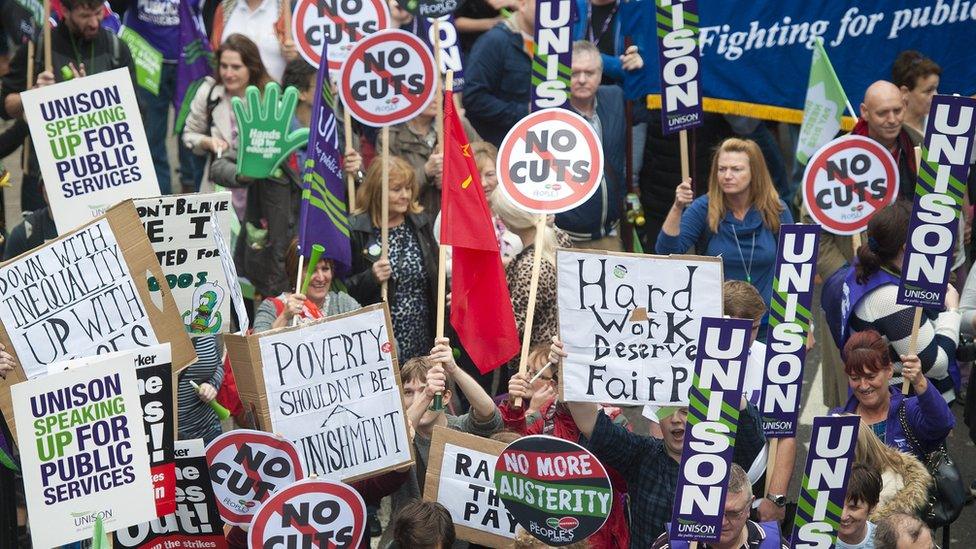
Unions have said they will fight the government 'tooth and nail'
Delegates at the TUC have voted for a "day of action" to oppose the government's proposed tightening of laws covering strikes.
There were warnings the Trade Union Bill - which passed its first Commons test despite Labour opposition on Monday - was a "declaration of war".
The government says the changes would protect the public from disruptive action, and had most people's backing.
Unions agreed to oppose the legislation "every inch of the way".
They also backed rail union RMT's motion for the TUC to consider "assisting in organising generalised strike action" in the event of legal action under the new bill being taken against trade unions.
TUC General Secretary Frances O'Grady, speaking at the TUC conference in Brighton, warned delegates that she had reservations about the phrase "generalised strike action", saying it was open to "ambiguous interpretation".
Nonetheless, she described the government's proposals as "the most draconian, the most ideological, the most right-wing assault on organised labour in any advanced industrial democracy in living memory".
Downing Street responded to the TUC vote by saying the reforms the government was seeking were to ensure the right balance between unions and those people who are affected by strikes.
MPs backed the Trade Union Bill, external, which proposes higher voting thresholds for ballots, by 33 votes at second reading.
During that debate Business Secretary Sajid Javid said the bill was "not a declaration of war" against unions but necessary to stop "endless" threats of industrial action, while Labour said the bill was "draconian and counter-productive".
The second reading in the Commons is the key test of whether legislation is likely to get through a vote of MPs - but the bill now has to go through a lengthy stage of line-by-line scrutiny in committee and also needs to be passed by the House of Lords before getting its final Commons approval.
The government wants to impose a minimum 50% turnout in strike ballots - with public sector strikes also requiring the backing of at least 40% of those eligible to vote.
Under current rules, strikes can be called if the majority of those taking part in a ballot vote in favour.
The bill, which would apply to unions in England, Wales and Scotland, will also:
Double the amount of notice unions have to give before a strike can be held - from seven to 14 days
Allow employers to use agency workers to replace striking staff
Introduce fines of up to £20,000 on unions for repeatedly failing to ensure picket supervisors wear an official armband
End the so-called check-off system for collecting union subs direct from a salary
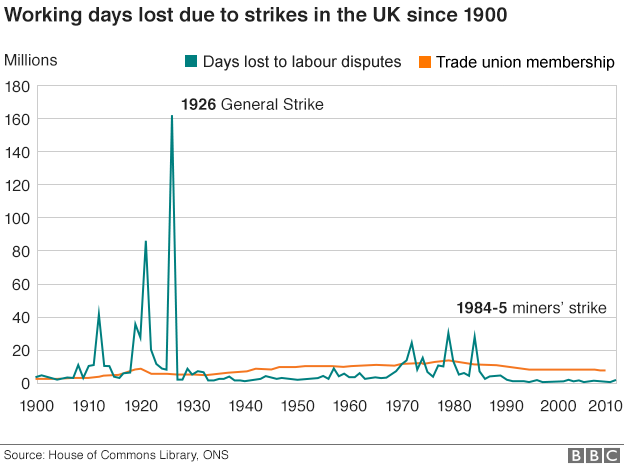
- Published14 September 2015

- Published15 September 2015

- Published7 September 2015
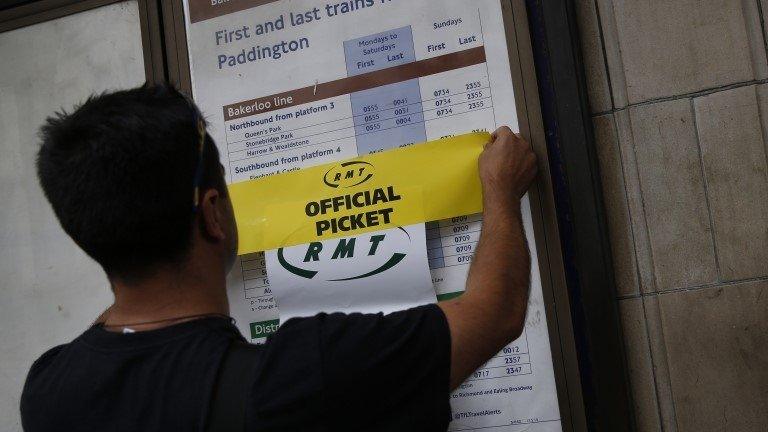
- Published15 July 2015

- Published12 May 2015
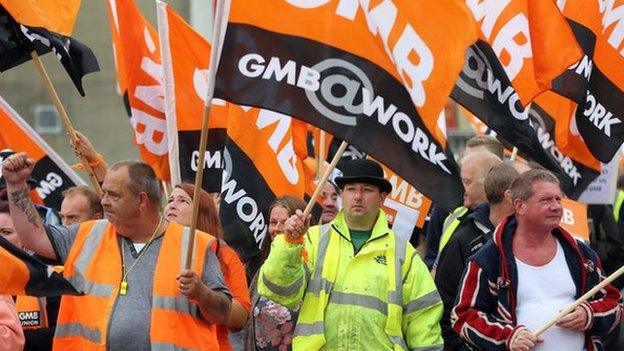
- Published27 May 2015
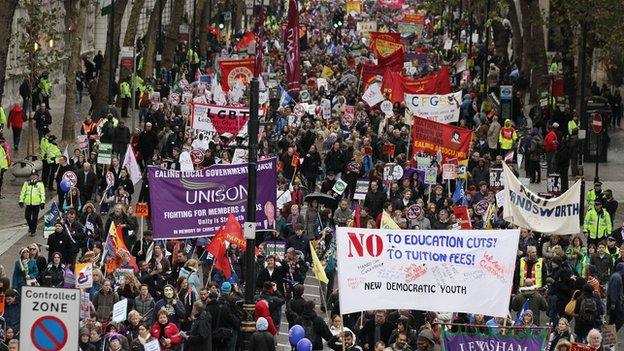
- Published15 July 2015
